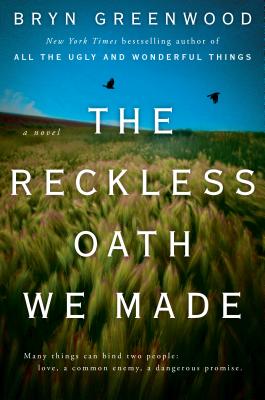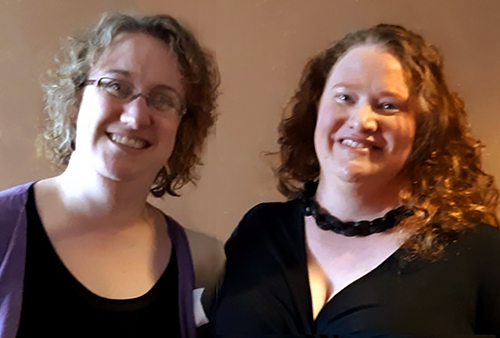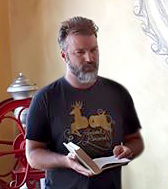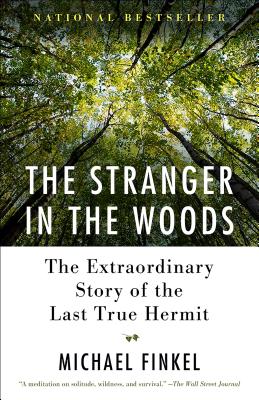 |
 |
 |
 Jen Jen |
|
Once again, Bryn Greenwood has delivered an amazing, familiar yet fresh story of characters battling poverty and an unlikely romantic pairing. In The Reckless Oath, Zhorzha, known as Zee, is struggling through life, saddled with an unfortunate family history - her father went to prison for a bank robbery & murder, her mother is a house-bound hoarder, her sister is unreliable, and her brother-in-law is a jerk. While in physical therapy, Zee meets Gentry, an autistic man who hears voices (and holds conversations with those voices) and is consumed by all things medieval England, including his everyday speech. One of the voices heard by Gentry reports that Gentry is Zee's champion and he must protect her. When Zee's sister goes missing, Gentry and Zee find themselves tangled up in each other's lives and families. The plot is complex and well-written. Like Greenwood's last book, All the Ugly and Wonderful Things, the narrative in Reckless Oath is told in short narratives from a number of different perspectives. She is the master (goddess?) of telling a great story with elements that may be new to the reader. I have my fingers crossed that she has a lot of stories yet to write. Note: this book will be out August 20.
Jen enjoyed meeting author Bryn Greenwood at our Spring Meeting. |
|||||||
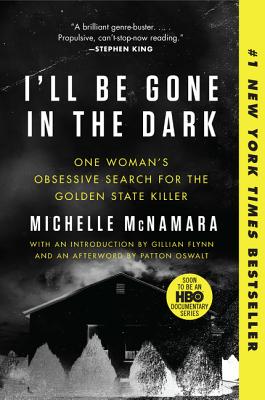 |
I'll Be Gone in the Dark: I’m reading this book for the Beagle Women’s Book Group discussion in August. I can’t remember the last time I read a book from the True Crime section and I’m not sure why, it’s just the kind of non-fiction I like to read. Like a lot of Americans, I’m a sucker for mysteries, thrillers, who-done-its, and true crime shows. The writing of I’ll Be Gone in the Dark is compelling, which is no surprise - the author, a true crime reporter, was obsessed with tracking down the identity of the Golden State Killer (a moniker for which she can take partial credit.) Added to that, however, is the twist that while McNamara was working on I’ll Be Gone in the Dark, she died in her sleep at the age of 46. There are periodic notations in the book that read: “Editor’s Note: The following was pieced together from Michelle’s research…” There’s something even more chilling about reading true crime reporting from beyond the grave. If you’ve forgotten the details of the Golden State Killer (GSK) case, the GSK assaulted and killed his victims in northern California for over 10 years before abruptly stopping his activities in the 1970s. I’m looking forward to discussing this one with the other women in the Beagle Women’s Book Group! |
||||||||
| |
|||||||||
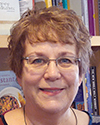 Sally Sally |
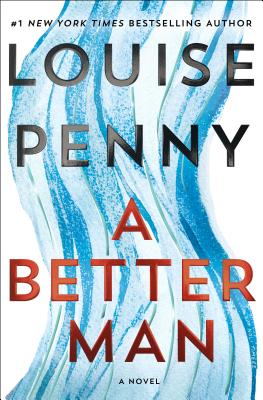 |
A Better Man |
|||||||
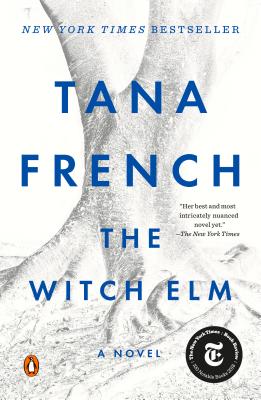 |
The Witch Elm |
||||||||
 Ann |
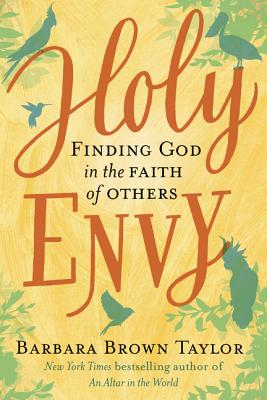 |
Holy Envy: Finding God in the Faith of Others In Holy Envy, Barbara Brown Taylor describes her experience as the teacher of an undergraduate college course exploring world religions. Through reading, discussion, and field trips, Taylor and her students expand their knowledge and understanding of faiths other than their own. Many times, barriers are broken down in the process. Taylor describes some of the various ways that her students react to the faith experiences and information that is presented. She also reflects openly on her faith journey. At the end of a field trip, one leader tells the group that his goal is not to convert them. Instead, he explains, his wish is for each of them to excel in their faith and become the best person they can be. Holy Envy is both informative and inspirational. |
|||||||
 Bob |
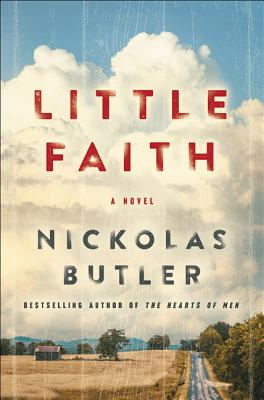 |
Little Faith This book covers a year in the life of Lyle Hovde, a retired man, who has struggled with his faith since his early years when his less than one-year-old son died. He and his wife decided to adopt a baby girl. She brought them much joy, but when she hit puberty things don’t go the way one might hope. She was rebellious and eventually became pregnant with a son. Lyle dearly loves spending time with his grandson, Isaac. He loves showing him the wonders of nature and teaching him about life. Then they find out Isaac has a treatable form of diabetes. The problem lies with his daughter, who has joined a fringe, healing faith church, who believes that with enough faith they will cure anyone and furthermore they believe Isaac is a healer. Lyle questions himself and his faith and it all comes to a powerful head. This is a delightful and well-written book that flows along with great sidebar descriptions of various nature settings. Even though it’s not Sci-Fi, it will still go down as one of my favorites.
Nick Butler at a Beagle and Wolf event at Bella Caffe’ this spring. |
|||||||
 Cascade |
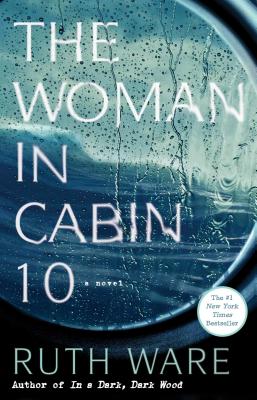 |
|
|||||||
 |
Room This book is devastating and hard to read at times, but tells such an interesting story that I couldn’t put it down. Jack has lived in Room for all of the five years he’s been alive. Room is a garden shed turned living space where a man called “Old Nick” has kept Jack and his kidnapped “Ma.” They have a routine down and Jack is entirely comfortable in this cramped space, but Ma feels otherwise. They come up with a plan of escape, only realizing how ill-prepared they are for the real world once they are back in it. I originally watched the movie (which was also quite good) and found that reading the book brought so much clarity to the story I already knew. Whether you’ve already watched the movie or read the book, I would advise you to pick up the other for a more rounded experience. |
||||||||
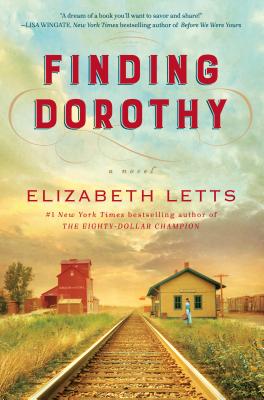 |
Finding Dorothy I loved The Wizard of Oz movie as a kid. I admit I never read past the first book in the Oz series, but this novel made me want to pick up the series anew. This book tells the life story of Maud, the wife of Frank Baum, with every other chapter being set during the shooting of The Wizard of Oz movie. Maud felt protective of both her late husband's work and young Judy Garland. She stayed at the set for hours to watch over Judy and pulled tricks in order to make sure the story was told the way Frank would have intended. This book is historical fiction at its finest and I felt nostalgic on every page of it. |
||||||||
 Gail |
|||||||||
|
Have you ever thought about giving it all up and just living off the land? |
||||||||
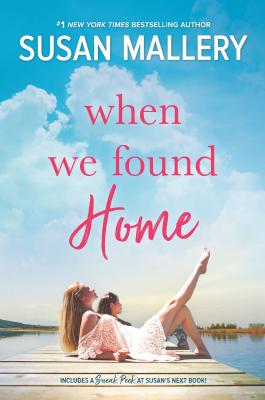 |
When we Found Home Grandfather Alberto founded a food catalog business in Seattle. His son Jerry manages to have three children with three different women and has no contact with any of them. When Jerry dies, Alberto finds his grandchildren and moves them to the grand family home. Trying to become a family is full of trial and error. This is an interesting concept, turning an ordinary story into something special. Susan Mallory is a New York Times bestselling author. She writes humorous and heartwarming stories and is passionate about animals, so they play a big role in her books. This is a great summer read. |
||||||||
 |
A Line Becomes a River: Dispatches from the Border The author, who was raised in the U.S., visited Mexico often as his mother was the daughter of a Mexican immigrant. Because of his love of the land, though it is a harsh landscape, Francesco joined the border Patrol against his mother's wishes. After he left the patrol, he wrote this book. In his words, "I knew I would need to write of the manifestations of border violence and the drug war that often spurs the migrants flight from home. Also an intimate portrait of the threat that hovers over them long after they reach America. A threat always poised to come knocking at the door." The rhetoric we hear casts migrants as animals, gang members, and rapists. We need to realize that often they are just people like you and me striving for a better life for their families. The author gives us a good view of life on the border. This is not an easy book to read but a very important one to discuss with others. |
||||||||
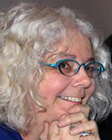 Hannah |
|||||||||
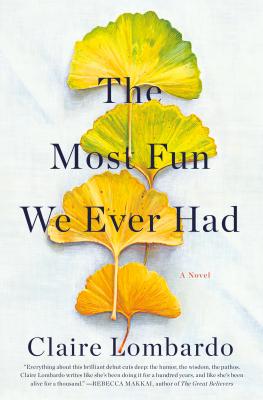 |
The Most Fun We Ever Had |
||||||||
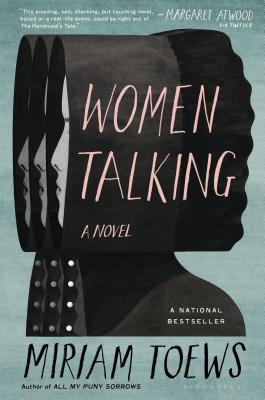 |
Women Talking |
||||||||
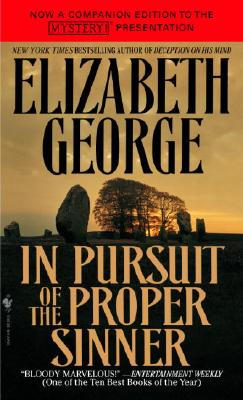 |
In Pursuit of the Proper Sinner I’m continuing my chronological binge reading of George’s detective series. I was somewhat worried about poor Barbara Havers at the end of In the Presence of the Enemy, so I had to hurry on to Deception on His Mind. And this one features Havers as the main character! But then there are repercussions to her actions in In Pursuit. The characters have such strong personalities and story arcs, but the prose also keeps me going. Every once in a while, George introduces an unfamiliar word that you don’t need to know to get the gist of the sentence, but I often grab my phone and look these words up as they are so delightful, such as “susurrated.” |
||||||||
 Tim |
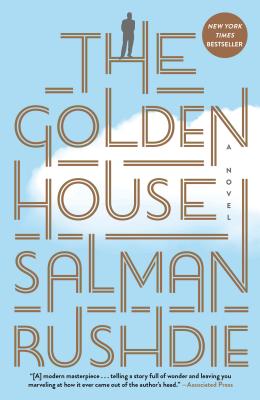 |
The Golden House Nero Julius Golden has immigrated to New York City in 2009 with his three sons, and re-invented himself… new country, new name, new life. That’s the promise of America… a fresh start. That’s fine if your motives are genuine but if all you’ve done is begin another lie to escape a past of lies and evil, inevitably it unravels. Identity, what is it? How do we explore and enrich our lives by mature cultivation of it? How do we interact, encourage, and support those around us who struggle doing the same work? This is humanity at its best! Rushdie also illustrates the despair and ugly wreckage wrought by the Golden Cartoon and his manufactroversies. |
|||||||
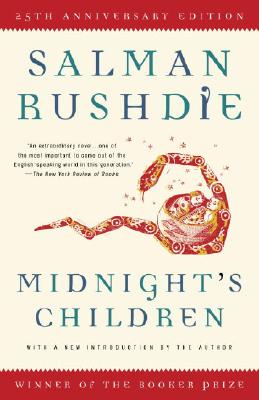 |
Midnight’s Children |
||||||||
|
Would you like to be a guest reviewer? Email Sally at sally@beagleandwolf.com |
|||||||||
— page top — |
|||||||||
| About Us How to Find Us |
